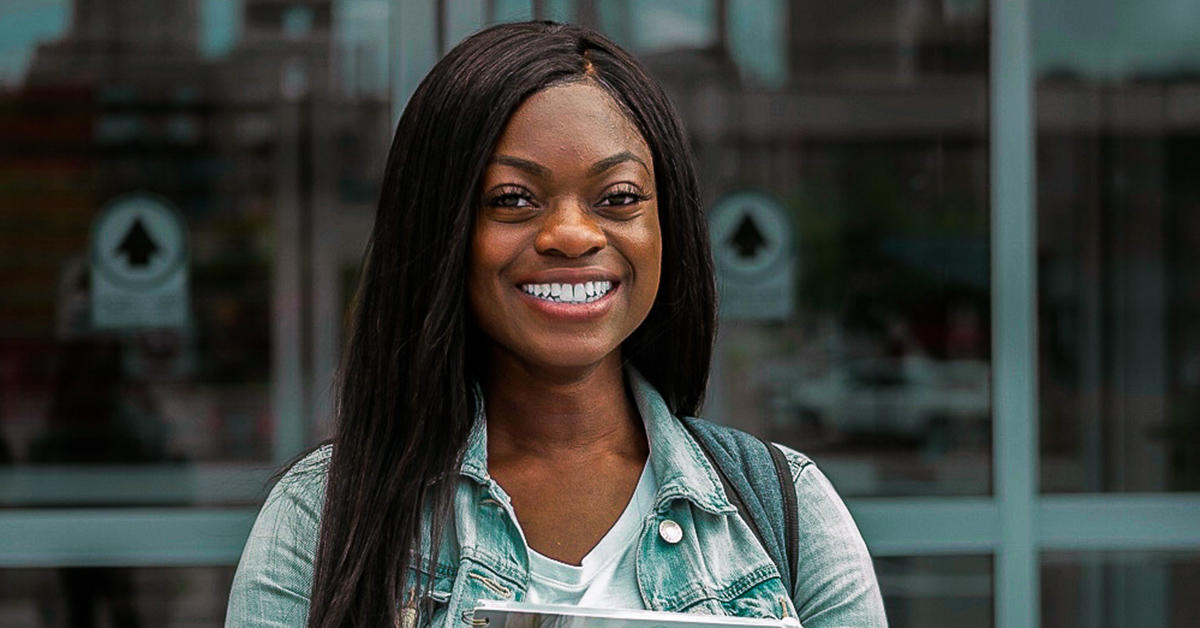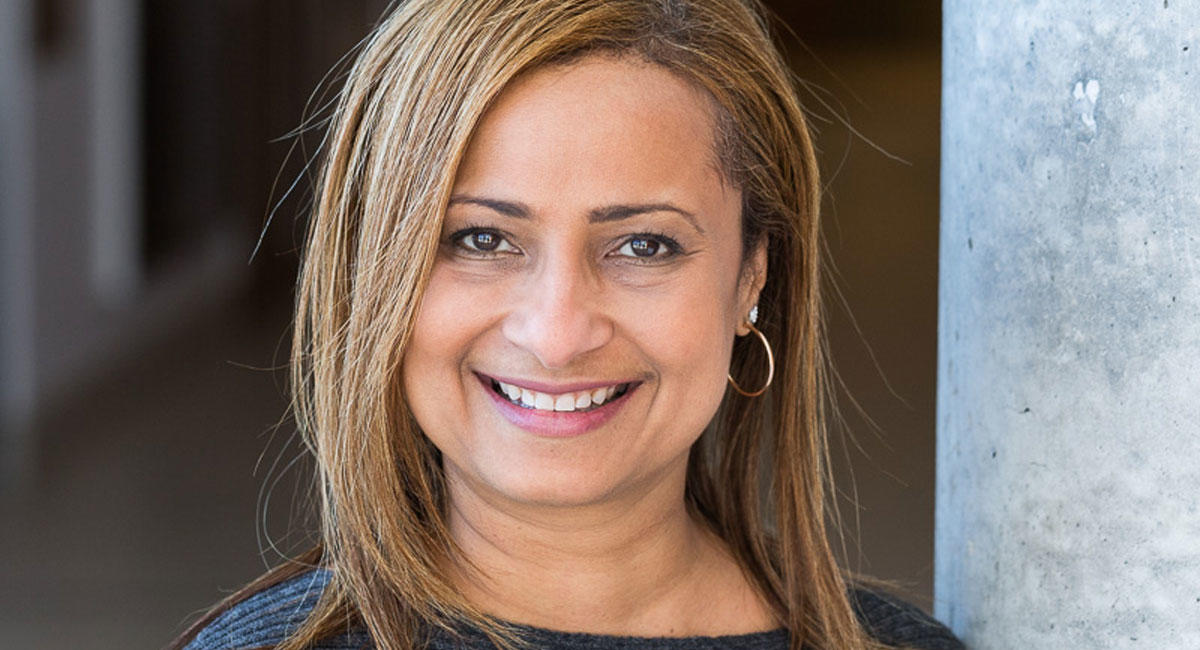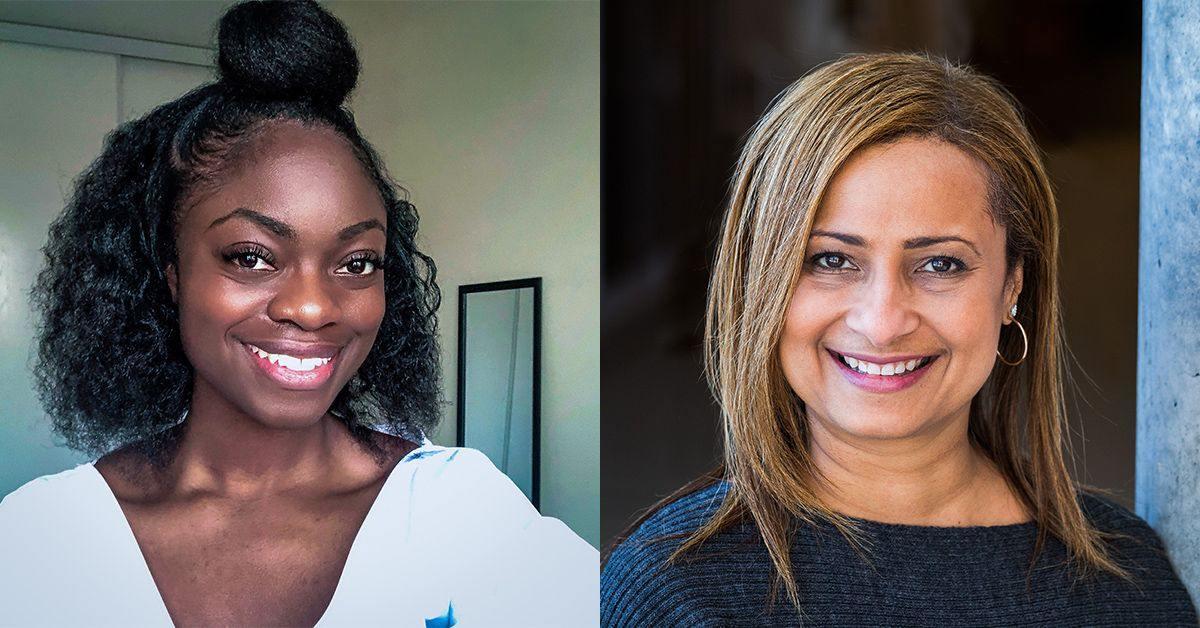Following the deaths of George Floyd, Breonna Taylor and Ahmaud Arbery, protesters and activists have begun to bring about change. Reforms that address systemic racism and police brutality have already been set in motion, and several cities in the US have either pledged to dismantle their police force or increase the accountability of their law enforcement officers. Across Canada last week, thousands of people came together to march in solidarity.
This is important progress, but there is still much work to be done across North America and here at home.
In light of keeping this momentum going, here are more insights from members of uOttawa’s Black community.

Anna Ampaw
PhD student in bioorganic chemistry
The past few weeks have been beyond difficult and saturated by an overwhelming cocktail of emotions — pain, disgust, anger and most of all, deep sadness. Watching the video of George Floyd’s neck crushed under the knee of a white police officer, in broad daylight, left me rattled because of the reality that this could have been my father, cousin or friend.
Growing up Black in North America, I have had to fight against racial bias and systemic racism. I remember when in Grade 3, I transferred to an elementary school that was in a low-income part of the city. Without even reading any of my work, my teacher failed me, saying that I was not smart enough to pass on to the next grade. (This is after I had skipped Grade 1 in my previous school because I was considered smart enough to move up). It was not until my parents intervened that the teacher “realized” that I was smart enough to pass the class.
I have had a store owner call security on me because she thought I was stealing. People doubt that I am getting a PhD in chemistry, I have been the only Black person in my classes and department, and I am scared for my life when the police pull me over. This is the “Black lives experience,” and we are tired.
The recent tragic events against Black people in the U.S. have created an opportunity for us to have long overdue, profoundly necessary conversations. Non-Blacks must now sit down, reflect and engage in dialogue that confronts ignorance. As allies, ask yourselves: What is the first thing I think of when I see a Black person? Do I see Black people as “lesser than”? Do I make biased assumptions about a person because of their skin colour? Do I think of myself as “better than” because of my skin colour? What is my privilege and how can I help others that do not have the same privilege?
Our world needs to change, and we need everyone’s help to make it happen. I do not want to tell my children the same thing my dad told me when I was growing up, that to make it in this world, I must work twice as hard to get half as much because I am Black. I want to be able to tell my children that they can become anything in this world regardless of their skin colour.

Johanne Adam
Content Creator for uOttawa’s Communications Directorate
From a young age, I was already very proud of being different. When my classmates were curious about me, I was eager to tell them about my Haitian origins.
I've never wanted to change my colour or my identity. Besides, navigating between two cultures has always been a great richness for me. It's what opened me up to the world and instilled in me a natural sensitivity and acceptance of others' differences.
Now, I'm a Black woman, a professional, from a privileged environment. I’m very well surrounded and a little overprotected. But this does not prevent me from seeing, feeling and experiencing racism where I live, here in Canada, "the best country in the world," as a certain Prime Minister once called it.
This racism is sometimes blatant, and in those cases, I make my feelings heard. Like the time the father of an old boyfriend took strong exception to my relationship with his son. A sacrilege!
But more often than not, racism manifests itself in subtle ways. An unwelcome comment about my skin tone, here. A poor imitation of the Creole accent, there. Or an unusual question in a job interview.
Because indeed, the professional world is no exception. Like most Black parents, my mother and father warned me that I would have to work twice as hard as my white colleagues to get the same privileges, sadly.
Most of the time, I ignore this subtle racism. Why do I keep quiet? Because even if it's clearly felt, it's impossible to prove. I don't want anyone to claim that it's just a figment of my imagination or accuse me of being bitter. Me, who is always positive, smiling and bubbly!
The sordid murders of Black men and women, including the recent killing of George Floyd, are a brutal reminder to me of how fragile the situation of people of colour is in this society.
I've always made it a point to educate in the face of awkward questions and comments, although, at times, I'm a bit annoyed at having to do so. But hey.
I am often surprised by the questions and presumptions I get about the community I come from. Without being an expert on the subject, I believe that building authentic friendships with people from an ethnic background other than our own is a first step to better understanding their experiences, challenges and deep concerns.
It is also a step toward real awareness of our own misconceptions.
For my part, I am surrounded by friends who are Haitians, Laotians, Vietnamese, Cameroonians, Malagasy, Czechs, Chinese, Lebanese, Saudis, Tibetans, Grenadians, Jamaicans, Canadians and more! It is great, take my word for it.
Learning, reading and educating ourselves about Black cultures allows us to understand the full impact of these prejudices, to be open to these realities, and to see why the injustices of the past continue to this day.
It is a first step toward creating alliances that are essential to the elimination of racial discrimination, once and for all.
